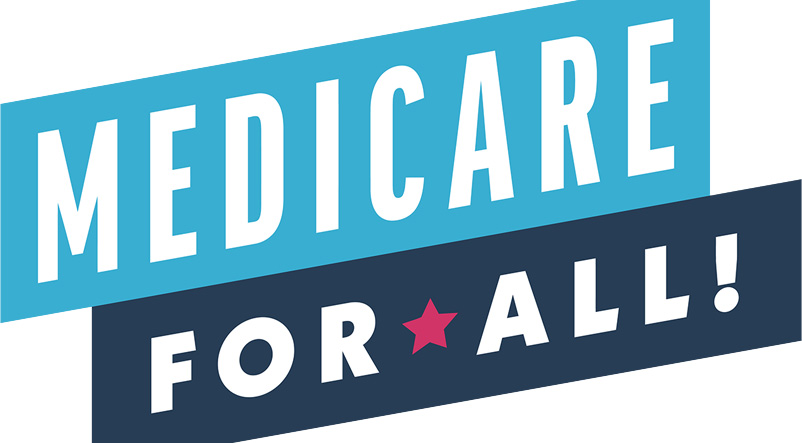
Employers currently pay about $10,000 per employee for health insurance. This comes directly out of your paycheck, but most people can’t be convinced of this. If you were to tax them $10,000 for all-in universal health care, they’d see it as losing $10,000 per year. And who knows? Corporations aren’t known for their benevolence, and there’s no guarantee that if you eliminated their health care obligation they’d use that savings to increase everyone’s wages. So maybe “most people” are right.
This is why I continue to think that anyone who’s in favor of Medicare for All should also be in favor of funding a big chunk of it via a payroll tax on employers. That way, the people paying for health care stay roughly the same and no one is the victim of a massive tax hike. There are, of course, still details to work out. Who pays for contractors? How much do corporations pay for part-time employees? Etc. But those are not insurmountable problems. They can be worked out. And when they are, it works out to employers paying about $5 per employee hour for health insurance. According to the BEA, Americans work about 250 billion hours per year, so a payroll tax on corporations of $5 per hour of paid employee labor comes to:
- $1.25 trillion
Current federal and state spending on Medicare and Medicaid comes to:
- $1.25 trillion
If you figure that Medicare for All will cover 85 percent of health care expenses—which is about average for other health care systems—then households will continue paying about:
- $500 billion
Other federal spending comes to about:
- $100 billion
This adds up to $3.1 trillion. Total current health care spending is about $3.6 trillion, which means we need to find about $500 billion more. That’s it. You may assume any combination of your favorite spending cuts and tax increases to fill this gap. If, like me, you assume that spending won’t change (getting rid of private insurance overhead will be balanced by covering more people), then you need a $500 billion tax increase. This is hardly chump change, but it’s also far from insurmountable. We can start by reversing the Republican tax cut of 2017, and then finish up by adding a fairly modest additional tax on the rich.
In other words, this isn’t that hard. But you have to keep all the current funding in place if you want to avoid gargantuan numbers. And here’s what the public gets for this:
- Health care is easy. Just show your M4A card when you see a doctor and you’re done. No fighting with insurance companies.
- Everyone is covered from the day they’re born.
- You don’t lose your coverage if you lose your job.
- Your coverage doesn’t change whenever your employer decides to save some money by switching insurance companies.
- Every doctor and hospital is paid via M4A, so you can see any doctor you want. You don’t have to worry about whether your doctor is part of your insurance company’s network.
- No surprise billing ever.
What’s not to like?













